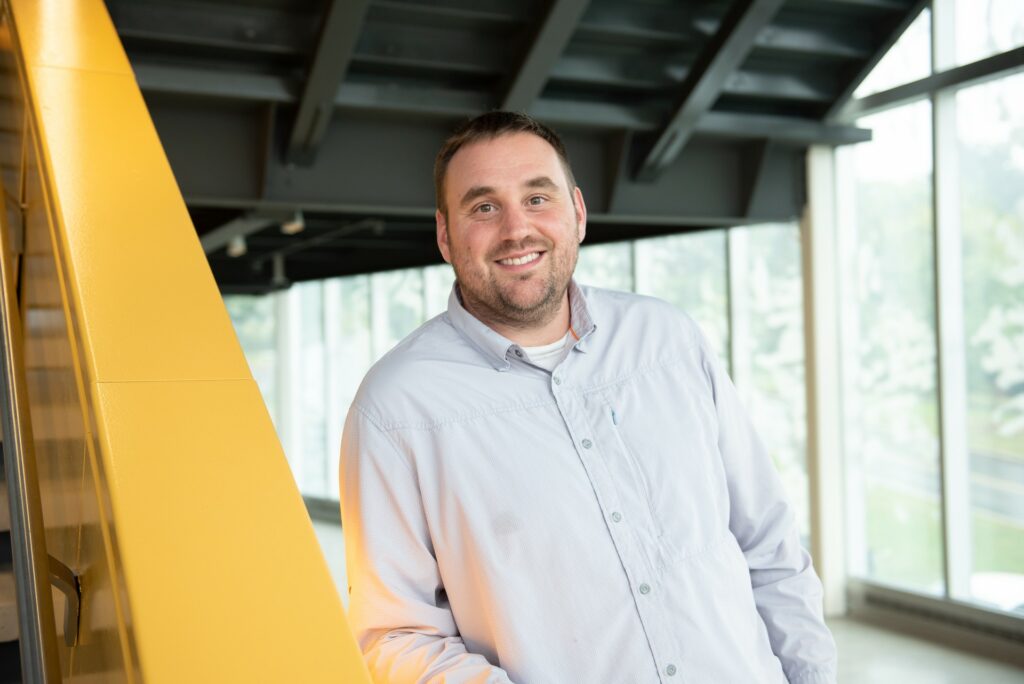Anton Boudreau Ninkov Elected CAIS/ACSI President for 2025–2026
We’re thrilled to share that Anton Boudreau Ninkov, Research Associate at the ScholCommLab, has been elected President of the Canadian Association for Information Science / l’Association canadienne des sciences de l’information (CAIS/ACSI) for the 2025–2026 term. In this blog post, Anton reflects on what this role means to him and outlines the key goals he aims to pursue during his presidency.

Q1: What does serving as the CAIS/ACSI president mean to you?
I am very happy and honoured to have the opportunity to serve as CAIS/ACSI president in 2025-2026. As someone who received my doctorate at Western University, completed my bachelor’s degree and postdoctoral research at uOttawa, and am now a professeur adjoint at Université de Montréal, I have a deep connection to and appreciation for the information science schools in Canada. Having the opportunity to work with them collaboratively in this position is a very meaningful experience for me. Additionally, by following in the footsteps of some of the previous presidents of CAIS, such as the immediate outgoing president Nafiz Shuva, Julia Bullard, and Phillipe Mongeon, I join a tradition of great Canadian information science scholars and am humbled to be part of such a prestigious list. It is also not lost on me that I take on this role at a time in the world when it has never meant more to be a member of a regional association like CAIS/ACSI, as a result of the lack of confidence in some of our international collaborations. I look forward to helping guide this important Canadian organization in these times.
Q2: What are you planning to achieve during your presidency?
First, I will mention that while the title is “President,” the role is not what we may think when we consider presidencies like those in the USA or France. I have no power to make executive orders or declarations. My primary and most important goal is a functional one. I view my responsibility as guiding the executive board to respond to the questions and issues we face and offer my perspectives on paths forward and improve the efficiency of how our work is done. That being said, there are a few key issues I hope we, as an executive board, can continue working towards. First is the issue of membership outreach and events. Many strides have been made on this front in recent years (Université de Montréal officially became a member of CAIS/ACSI this year), but there is still work to do. We are exploring ways to engage members by providing them with more information about CAIS/ACSI operations, gathering feedback to improve our association, considering the types of events we could plan outside of the conference that would help our members, and adding additional resources to the association website. Secondly, I hope to work with the board to continue improving our ability to meet our mandate to be bilingual. While the majority of members are unilingual Anglophones, our association has many bilingual, multilingual, and unilingual Francophone members. It is important that our organization finds ways to bridge the language gap as much as possible. At a minimum, this requires us to provide all association resources in both official languages. If we can use tools to help address the challenges of operating in two official languages, I will be happy to introduce them. Finally, I would like to reiterate that we are living in very turbulent and uncertain times. Regional, national, and federal organizations like CAIS/ACSI have never been more important. It is my goal to help guide the board and association during these times and contribute to meeting the needs of our members, who include researchers and practitioners throughout Canada and beyond.
DOI: https://doi.org/10.59350/scholcommlab.5488
To stay up-to-date on the ScholCommLab’s latest news, subscribe to our newsletter.